 Petzlover
Petzlover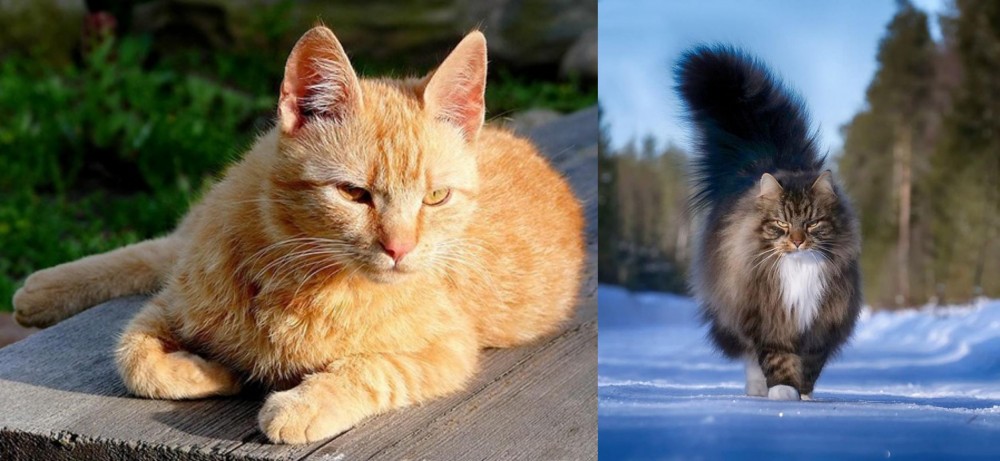 Brazilian Shorthair is originated from Brazil but Norwegian Forest Cat is originated from Norway. Both Brazilian Shorthair and Norwegian Forest Cat are having almost same weight. Brazilian Shorthair may live 4 years more than Norwegian Forest Cat. Both Brazilian Shorthair and Norwegian Forest Cat has same litter size. Brazilian Shorthair requires Low Maintenance. But Norwegian Forest Cat requires Moderate Maintenance
Brazilian Shorthair is originated from Brazil but Norwegian Forest Cat is originated from Norway. Both Brazilian Shorthair and Norwegian Forest Cat are having almost same weight. Brazilian Shorthair may live 4 years more than Norwegian Forest Cat. Both Brazilian Shorthair and Norwegian Forest Cat has same litter size. Brazilian Shorthair requires Low Maintenance. But Norwegian Forest Cat requires Moderate Maintenance
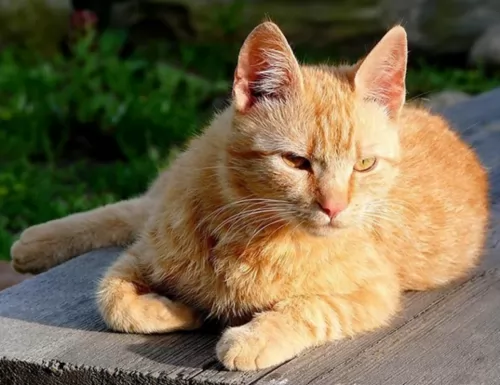 This attractive purebred cat is the first cat from Brazil to get international recognition.
This attractive purebred cat is the first cat from Brazil to get international recognition.
It is amazing that this cat goes back to the streets of Brazil as a feral cat. Centuries ago, when the Portuguese arrived in Brazil, they brought cats with them.
It was in the 1980s that a Brazilian cat breeder wanted to transform certain street cats into purebred cats and the Brazilian Shorthair emerged from these efforts. In 1998, the World Cat Federation gave the cat ‘approval breed’ status.
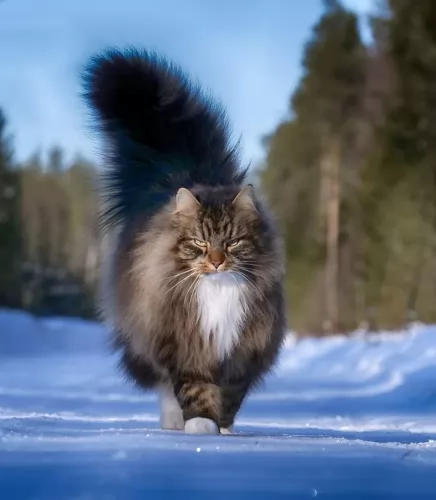 The beautiful Norwegian Forest cat has a thick fur to survive the snow and icy weather in Norway. It is the official cat of Norway.
The beautiful Norwegian Forest cat has a thick fur to survive the snow and icy weather in Norway. It is the official cat of Norway.
It originated in Northern Europe. It is believed that the cat was brought to Norway from Great Britain way back in the time of the Vikings. It is also believed that it reproduced with farm cats and has become the modern-day Norwegian Forest breed.
They were discovered in the early twentieth century by cat enthusiasts and in 1938 an organization was established devoted to this breed.
Also, a club was started for the cat in Oslo so as to preserve the breed. The 2nd World War saw the cat all but disappear but a breeding program was started. It was registered in Europe by the 1970s, and in 1994 by the American Cat Fanciers Association and others.
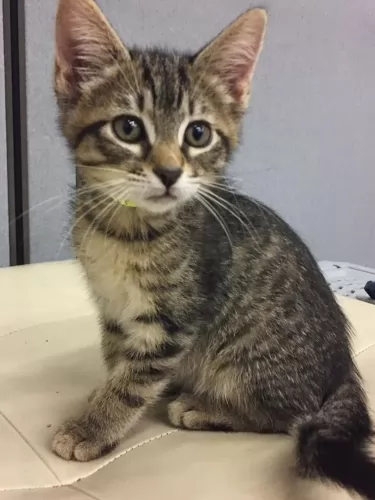 The Brazilian Shorthair is a purebred, medium to large sized cat that can weight between 5 nd 10kg. He is a thick-set cat that is muscular and strong and elegant to look at. The short coat comes in a variety of colors and patterns such as grey, black, orange, white and tan. The coat doesn’t require much grooming, but it is always beneficial to your cat to gently brush him to remove any excess hair there is. This cat has got such beautiful expressive eyes that you feel as if he wants to communicate with you sized cat
The Brazilian Shorthair is a purebred, medium to large sized cat that can weight between 5 nd 10kg. He is a thick-set cat that is muscular and strong and elegant to look at. The short coat comes in a variety of colors and patterns such as grey, black, orange, white and tan. The coat doesn’t require much grooming, but it is always beneficial to your cat to gently brush him to remove any excess hair there is. This cat has got such beautiful expressive eyes that you feel as if he wants to communicate with you sized cat
This is an adaptable cat that is able to adjust to the lifestyle you provide him with. He is an outgoing, intelligent, and inquisitive cat and enjoys the company of his human family, whether that includes children and other pets.
He gives a lot and expects lots of attention back from his humans. He is an inquisitive cat and loves to be going on his own adventures exploring.
He loves life and won’t enjoy a lifestyle where he is expected to lie around most of the day. He is intelligent and can learn tricks, and even though he is an elegant looking cat, he likes being active, spending time outdoors, and putting his hunting skills to the test.
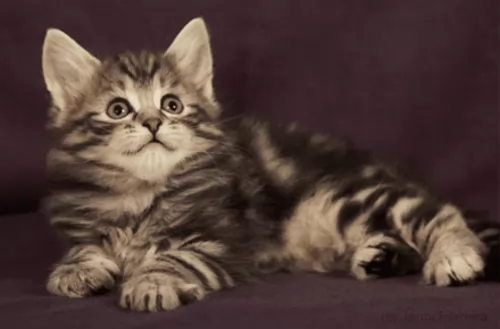 This domestic cat is a natural breed with a thick coat of long water-resistant fur and a woolly undercoat. The coat can be in many colors and patterns.
This domestic cat is a natural breed with a thick coat of long water-resistant fur and a woolly undercoat. The coat can be in many colors and patterns.
This is a big, strong, heavy boned cat with a bushy tail and long legs. It’s larger than your regular cat and can weigh anything between 3 and 9kg. The eyes are almond-shaped and can be any color while the large ears are high set.
In spite of this being a large cat, they are energetic and yet they don’t like being around boisterous, energetic pets. They are friendly, calm, gentle, and intelligent and enjoy being part of a human family.
They tend to be a bit reserved around strangers. It’s not a demanding cat and can entertain himself with his toys.
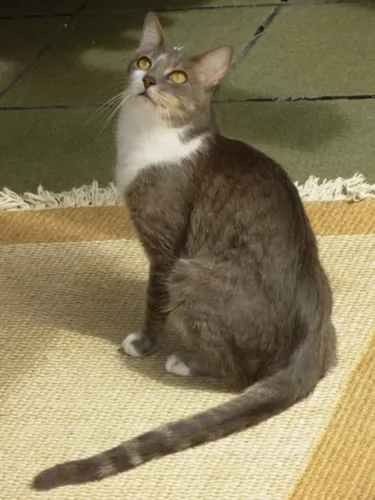 The Brazilian Shorthair makes a great choice for a loyal feline companion and he is a good looking cat too. They love human contact and love spending time with their human family, getting on well with the children in the home as well as other pets.
The Brazilian Shorthair makes a great choice for a loyal feline companion and he is a good looking cat too. They love human contact and love spending time with their human family, getting on well with the children in the home as well as other pets.
They don’t shed a lot either and therefore require little grooming. They’re adaptable pets too and become used to their different environments, loving to explore new places and even meeting new people.
They’re intelligent and can learn a few tricks that you’d normally teach a dog. As an intelligent cat, it loves to be challenged.
With so much going for him, no wonder the friendly, adaptable Brazilian Shorthair cat is such a popular breed as a domesticated house cat.
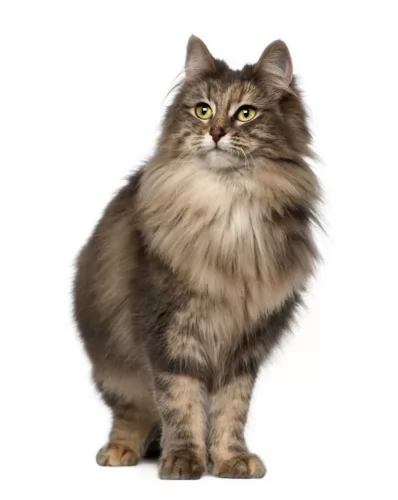 Remember that your large Norwegian Forest cat likes to scratch so you want to provide him with a scratching post. He is so companionable, you want to reward him by ensuring you make his life as easy as possible.
Remember that your large Norwegian Forest cat likes to scratch so you want to provide him with a scratching post. He is so companionable, you want to reward him by ensuring you make his life as easy as possible.
Known as a gentle giant, the beautiful and undemanding Norwegian Forest cat will appreciate a calm household where he can quietly enjoy the companionship of the humans he loves.
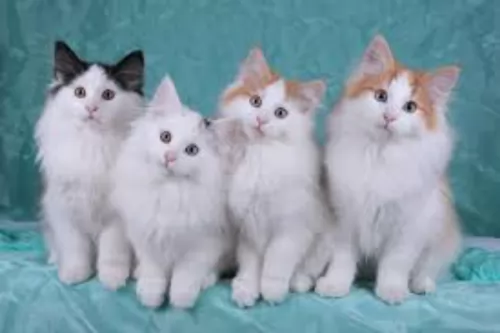 The lifespan of this big, longhaired cat is usually 14 to 16 years, but you need to check out kidney and heart disease with this particular breed as well as patellar luxation.
The lifespan of this big, longhaired cat is usually 14 to 16 years, but you need to check out kidney and heart disease with this particular breed as well as patellar luxation.
You don’t want your cat having problems with the knee cap as this takes away from his ability to leap, pounce and crouch. It’s when the patella or kneecap is out of place. There may not necessarily be pain for your pet and in fact, your cat may not show any signs of abnormality till the condition has become quite advanced.
Your cat can actually become lame. You want to avoid this with the Norwegian as it's a particularly good climber.
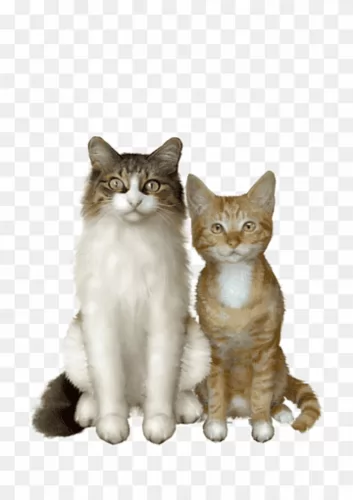 The Brazilian Shorthair has a short coat and won’t require too much grooming, although a gentle brush once a week is enjoyable. It becomes a bonding time with his owner and it keeps the coat free from dust and loose hairs.
The Brazilian Shorthair has a short coat and won’t require too much grooming, although a gentle brush once a week is enjoyable. It becomes a bonding time with his owner and it keeps the coat free from dust and loose hairs.
Check inside your cat’s mouth and make sure that all his pearly whites are just that. Sometimes a rotten tooth that he can’t tell you about can be a tremendous course of discomfort and pain. Also, check inside the ears for dirt and infection.
You can learn to clean the inside of the ears yourself but if you don’t want to do it, your vet or pet groomer can do these things for you – clip the nails of your pet, check the teeth for dental disease and check inside the ears.
Cats are carnivores, so they require animal protein for good health. Wet or dry commercial manufactured cat foods are super convenient and the best ones are excellent for your pet.
If you feel clueless about what to feed your cat, speak to your veterinarian who will guide you on the right food to give your pet. Certainly, your cat will need meat to get the nutrients he so badly needs.
The amount of food your cat needs to eat each day will depend on his age, weight, and activity levels. You want to get the correct amount of food right as obesity is a common health issue with cats and can contribute to a shorter life span. Always make sure your cat has access to fresh, cool drinking water.
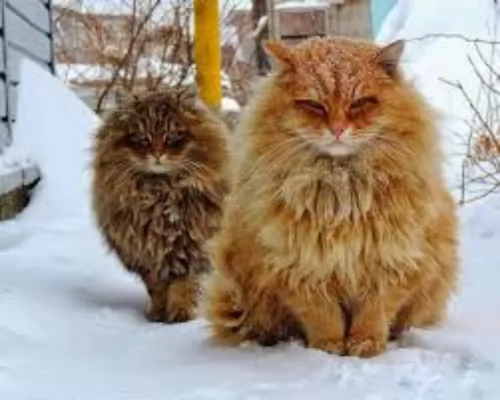 The Norwegian has a long coat so you will need to brush it at least twice a week to keep it nice and shiny and free from tangles.
The Norwegian has a long coat so you will need to brush it at least twice a week to keep it nice and shiny and free from tangles.
Trim your Norwegian forest cat’s claws. You will need a special nail clipper, but if you're nervous to cut the nails yourself, your vet or pet groomers can do it for you.
Cats battle quite a bit with periodontal disease and an excellent diet can help to prevent this. Cats hate you sticking a toothbrush into their mouths – they can become terrified - and it would b kinder to simply have your cat’s teeth checked out at the vet when you suspect that something might be wrong. At the same time, you can ask to have the inside of your cat’s ears checked for dirt and infection.
Keep your cat’s litter box spotlessly clean. These cats dislike a dirty litter box intensely. Remove all feces every single day – more often even if possible.
One good way to select the best food for your cat is to read the ingredients. The first two ingredients listed on the package should always be meat. Select a high-quality cat food. Keeping Norwegian Forest cats in good health requires high-quality cat food to meet all of your Norwegian forest cat’s nutritional needs.
You can feed your Norwegian Forest cat two meals per day. Always check with your veterinarian for a recommendation on how much and what to feed your cat.
Provide a constant supply of fresh, clean water for your Norwegian Forest cat.The bowl should be in an easy place for your cat to reach and in the shade.
Provide your Norwegian with a soft bed in a quiet, restful place.